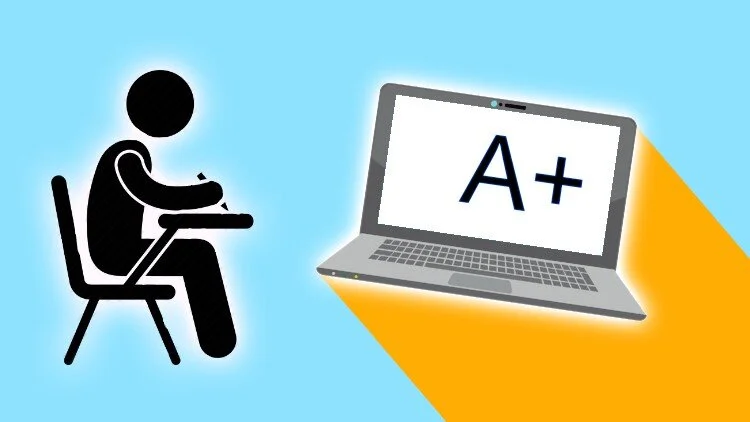Since that last day of school in March, 2020, our lives have been turned upside-down. We’ve all had to learn how to cope with staying at home when we want to go out, and students have had to learn to navigate new modes of learning through technology and virtual platforms. Now the pace is beginning to pick up, and this may leave some students behind either academically in general, or in their progress towards bigger goals such as college entrance, advanced diplomas, and career paths.
Vint Hill Education has always prided itself on working closely with students and families to find individual students’ strengths to meet the challenges of academic life, and our approach to these times is no different. We have always taken the time to communicate with parents and help shape learning plans so that the student’s needs are met and exceeded. And now more than ever, Vint Hill Education is ready and poised to offer support and guidance in navigating an ever-changing academic, test-prep, and college entrance environment. Our expertise can make the difference between a mediocre school year and one that is full of discoveries of new interests, approaches, and pursuits—truly the “silver-lining” of the Covid-19 school year.
See below or click here for more information on Virtual Tutoring, Pod Tutoring, Subject Tutoring and Academic Coaching, or Test Prep with our individualized, highly qualified, hand-picked tutors.
____________________________________________________________________________
Virtual Tutoring
Vint Hill Educational Services offers virtual tutoring through our online learning center. No matter where you live, you can work with a qualified test prep or subject specialist tutor! We also offer virtual academic coaching for students who need help with organization and time management. Our virtual tutoring provides the same individualized attention as our regular services. Sessions are one-on-one and personalized to each student’s specific needs. And students who pursue virtual test prep with us receive a full set of course books, as well as tailored homework assignments, full practice tests, and diagnostic score reports generated by our test scoring software.
Virtual tutoring sessions are held through Lessonspace and integrated with our parent/student Teachworks portal. Families receive free access to an actual virtual tutoring platform. With the click of one link, students can easily join their online sessions. There is no software to download; Lessonspace simply utilizes your web browser to host sessions.
Lessonspace was created for the sole purpose of online tutoring, so it is more comprehensive than other online meeting programs when it comes to tutoring sessions. Tutors and students have access to a white board where they can upload reading passages, math problems, science diagrams, full-length practice tests, Spanish homework, history papers, or any other subject materials a tutor and student may need to share. Session image recording is included, so students have the ability to review wok from previous sessions. Materials uploaded to the white board can be accessed by both the tutor and the student for direct and immediate interaction and feedback.
___________________________________________________________________
Small Pod Tutoring
Vint Hill Educational Services offers small pod tutoring for grades K-12. Students can work with a tutor in a small group setting of 2-5 students. Sessions can take place at our offices, a local library, in student homes, at public facilities, or virtually through Lessonspace. The students in the pod should be enrolled in the same class or currently studying the same subject. Multiple subjects can be covered in the same pod. Special pod tutoring rates apply. Please contact us to learn more.
SMALL GROUP SIZE
Pod tutoring involves small groups working with a single tutor. Students must be taking the same class or studying the same subject. For test prep pod tutoring, the students must share similar baseline scores. Other tutors can be brought in if the students are studying multiple subjects. For example, the pod may work with a Spanish tutor on Monday, and then switch to working with a Chemistry tutor on Wednesday.
STUDY TOGETHER AS ONE
Pod tutoring allows for a small group to work together alongside their pod tutor. Questions and ideas are bounced off one another with the main instruction being provided by the pod tutor. Being in a pod, new concepts are instilled as a small group, and creativity is always encouraged. Students are comfortable asking questions and feel less nervous around their pod peers.
LOW-COST ALTERNATIVE
Pod tutoring is an alternative for one-to-one tutoring and families can save money by utilizing small pod tutoring. The tutoring expense is shared among the families taking part in the pod. Parents will receive session notes for their students, so they are constantly kept in the loop. For ACT, SAT, SSAT, ISEE, and HSPT test prep, students are required to have their own set of course books which VHES will provide.
____________________________________________________________________
Academic Coaching
DOES YOUR CHILD STRUGGLE WITH STAYING ORGANIZED, PLANNING SCHOOLWORK, OR STUDYING FOR EXAMS? CONTACT US FOR A FREE COACHING ASSESSMENT.
Vint Hill Educational Services offers academic coaching for students who have difficulty getting motivated, staying focused, or keeping up in school. With backgrounds in counseling, mentoring, teaching, and special education, our coaches are highly experienced at working with youth and helping students overcome a wide spectrum of challenges.
Academic coaching is especially beneficial for individuals with attentional problems, low executive functioning, or learning or cognitive disabilities—though it is also valuable for those struggling to deal with the ordinary stressors of understanding complex information, planning assignments, studying for exams, or transitioning to college. Students who work with an academic coach typically require guidance and assistance in:
· Getting and staying organized
· Planning coursework and managing time effectively
· Starting and completing schoolwork
· Studying and reading with proficiency
· Managing stress, anxiety, and distractibility
· Balancing academic and personal responsibilities
· Preparing for tests
Our coaches complete assessments to identify the student’s challenges, strengths, goals, and learning style. They then create customized plans that integrate a variety of tools and techniques to help build confidence and improve school performance. Strategies include positive reinforcement, setting achievable goals, optimizing skills, breaking down tasks, creating a supportive environment, and tracking progress.
We select the best coach for your child and provide a coach profile for you to review and approve. The coach matching process considers the coach’s education, experience, and personality, as well as the student’s issues, schedule, and preferred location (e.g., home, office, public library). Each session is one hour in length and one-to-one for individualized support. Parents receive access to our online Teachworks system, allowing them to review coaching session notes, receive session email reminders, and keep track of used and remaining session hours.
____________________________________________________________________
Test-Prep
Vint Hill Educational Services offers test preparation for the ACT, SAT, PSAT, SSAT, ISEE, HSPT, and SAT Subject Tests. Each session is one-to-one for individualized support. The tutor will assign one to two hours of test prep homework after each session. The sessions are ninety minutes in length and test prep materials are included. The tutor will focus on the student's weakest areas of the test. In order to ensure improvement, the student will continue to take full-length practice tests throughout the course. The student will also learn tips and test-taking strategies.
2020-2021 MOCK ACT/SAT TEST DATES
AS OF AUGUST 2020, WE WILL BE PROCTORING TESTS VIRTUALLY ON SATURDAY MORNINGS AT 9:00 AM. UPON REGISTERING FOR A VIRTUAL MOCK TEST, YOU’LL RECEIVE A TEST PACKET VIA USPS MAIL.
PACKET INCLUDES:
ACT/SAT ANSWER SHEET
ACT/SAT TEST BOOKLET
*ACT/SAT ESSAY PROMPT
FOUR PAGES OF LINED PAPER
TEST INSTRUCTIONS
*THE ACT/SAT ESSAY IS OPTIONAL. STUDENTS INTERESTED IN TAKING THE ACT/SAT ESSAY WILL CONTINUE ON WITH THE TEST AFTER THE FINAL MULTIPLE-CHOICE SECTION (ACT SCIENCE OR SAT MATH).
PLEASE SIGN UP NO LATER THAN MONDAY DURING THE WEEK OF THE MOCK TEST. BE SURE TO INCLUDE YOUR ADDRESS DURING REGISTRATION, SO THAT WE CAN MAIL YOU A TESTING PACKET.
ALL ACT/SAT TESTS WILL BE PROCTORED VIRTUALLY THROUGH LESSONSPACE. THE DAY BEFORE EACH TEST, STUDENTS WILL RECEIVE AN EMAILED LINK TO JOIN THE VIRTUALLY PROCTORED TEST. THE TEST INSTRUCTIONS CAN BE USED SHOULD A STUDENT LOSE CONNECTION TO THE TESTING LOBBY.
ACT
Register for a mock ACT by clicking on a specific test date below.
Mock ACT test dates:
SAT
Register for a mock SAT by clicking on a specific test date below. :
Mock SAT test dates:
We also offer one-to-one mock testing at our offices. This consists of a full-length practice test for your child. Tests include: ACT, SAT, PSAT, SSAT, ISEE, HSPT, and SAT Subject Tests. We provide the test booklet, essay booklet, answer sheet, testing timer, calculator, and pencils.
We can send parents a practice test as well, to administer to their student in-home. We will send out a free practice test packet along with proctoring instructions. Parents must send the answer sheet back to us via email or mail.











